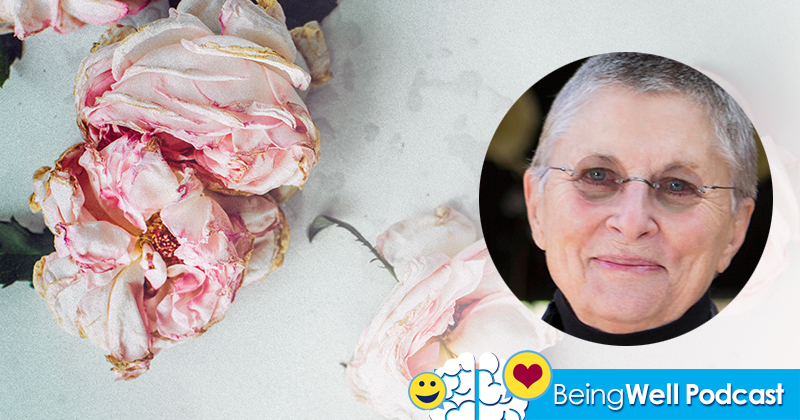01 Aug Being Well Podcast: On Death and Dying with Roshi Joan Halifax

Though there is no more human experience than death, it’s one of the most challenging topics to explore. Today we have the pleasure and privilege of learning from a true pioneer in the field of end-of-life care: Roshi Joan Halifax.
As you may know, “roshi” is a title for the honored teacher of a Zen Buddhist community. Roshi Joan Halifax is a Buddhist teacher, Zen priest, and doctor of medical anthropology. She is Founder, Abbot, and Head Teacher of Upaya Institute and Zen Center in Santa Fe, New Mexico.
She’s also the author of several classic books, including among others The Human Encounter with Death with famed psychiatrist Dr. Stanislav Grof, The Fruitful Darkness: A Journey Through Buddhist Practice and Tribal Wisdom (which has spent a lot of time on my nightstand recently), and Being with Dying: Cultivating Compassion and Fearlessness in the Presence of Death,
We would like to draw particular attention to her most recent book Standing at the Edge: Finding Freedom Where Fear and Courage Meet. In it, Roshi Joan identifies five psychological territories she calls Edge States – altruism, empathy, integrity, respect, and engagement – that epitomize strength of character. Yet each of these states can also be the cause of personal and social suffering. In this way, these five psychological experiences form edges, and it is only when we stand at these edges that we become open to the full range of our human experience and discover who we really are.
We’d also like to let people know about the Upaya Institute’s general fund, which allows Upaya to provide a wide array of workshops, trainings, and retreats for thousands of people each year. Gifts to the fund also help expand Upaya’s trainings in Compassionate End-of-Life Care and advance socially engaged Buddhist practice. If you would like to give to the fund, please follow this link.
Timestamps:
2:09: Roshi Joan’s childhood experience, and how it shaped her.
4:42: How has your work with the dying informed the way that you’ve lived your life?
8:17: In your experience of sitting with people who are going through the dying process, what have you found they particularly valued or regretted?
10:14: Handling existential dread.
11:48: We only have one “big” death, but we may have many “small” deaths throughout life. What lessons can we take from the “big” death and apply to those?
18:18: Can we know our own true nature?
20:56: Do you have any counsel for those who are grieving?
26:43: A teaching from indigenous cultures.
28:17: If you could go back in time and speak to yourself as a child or young adult, what would you say?






